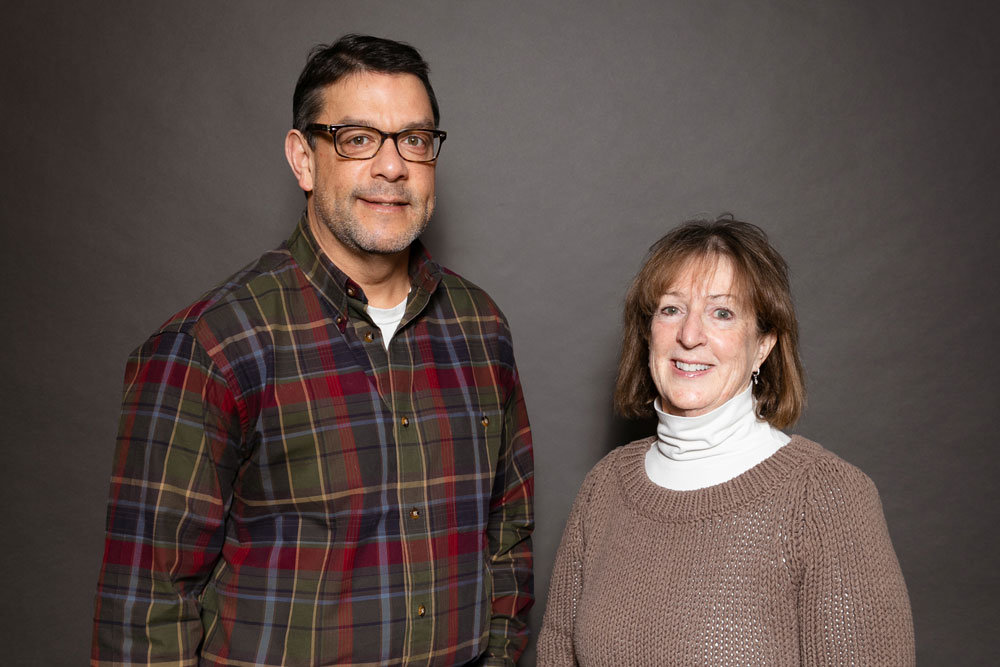YOUR BUSINESS AUTHORITY
Springfield, MO
YOUR BUSINESS AUTHORITY
Springfield, MO

Jonathan Groves and Morey Mechlin, co-chairs of the 2021 Springfield Community Focus Report, are the guests for Citizen Inc., Episode 7, from SBJ Podcasts. Groves is a professor of communication at Drury University, and Mechlin is a board member for Community Foundation of the Ozarks. The following Q&A is from the show, co-hosted by Springfield Business Journal’s Eric Olson and United Way of the Ozarks’ Greg Burris and recorded at ADsmith Studio.
Eric Olson: How does the Community Focus Report relate to business – to corporate citizenship?
Jonathan Groves: I always view the report as a pointer. So, how can we look at this and say who are we as individuals or organizations that we can take this and say how can we make a difference in our community focusing our strengths in certain ways?
Morey Mechlin: I have to admit, I looked up corporate citizenship before this discussion. And I got really excited, because this community is built on businesses. Businesses can have a huge impact on the quality of education. Nothing is in a silo. So, let’s take a small business who might give their employees an hour a week to go meet with a lunch buddy or go read to a student. The investment in that, the ripple effect, could be so amazing, because now you’ve got employees engaged in the schools. So, next time there’s a bond or a levy, they’ve seen the school, they know the people. It’s social capital. The whole community can benefit – from one hour a week reading to a student.
Groves: One of the red flags in the report is the shortage of skilled workers. So, one of the things we have to address as a community is how do I allow my workers to find the right work-life balance, so they are happy human beings. Giving back to my community is really important, especially to young professionals. It’s a way for them to offer a benefit to their employees that might actually keep people in the workplace. So, there’s actually a very tangible benefit. It’s not just good for the community – it’s good business. I’m recruiting people who are talented, passionate and engaged, and they want to stay because I’m allowing them to have those passions and connections to the community outside of the workplace. I don’t just see them as a cog in a machine; I see them as a human being that’s part of a community.
Greg Burris: I’ve had to readjust my thinking and learn the next generation is looking for work-life integration, where it just becomes part of the work-life that you do this. We always talked about work-life balance and always failed at it. [Laughter]
Groves: I think the pandemic has helped in that. It disrupted everything about the way we’ve lived. It also showed how we can look at work a little differently – how do we restructure schedules? – to balance with the realities we’re facing.
Olson: If the leader is already on board to bring programs to their staff, what are some other things they can consider drawing out of the Community Focus Report?
Mechlin: I want to challenge you, Eric, just a little bit. I think leadership comes from all levels. It doesn’t always have to be that person at the top. Let’s all come up with solutions.
Groves: Maybe this could facilitate a conversation in the organization, with everyone, saying, what are our values? What is important to us and what role do we play in the community? Not just to make money, but in terms of thinking about our responsibilities to the community. And every business can do that: Here’s all these 33 red flags; what can we leverage in what we do well to tackle one of these red flags that seems to fall right in our area of expertise or knowledge?
Olson: Of those red flags; what’s one specific opportunity?
Mechlin: Poverty. I’m not talking about salary here. What if businesses offered some financial literacy? The bottom line with poverty often is not the amount of money coming in but how it’s spent. Do we know about savings, investing? Do we realize when we pay 30% of our income for rent that we’re putting ourselves in a huge hole right off the bat? I think about businesses that are operating so efficiently and effectively – can you teach your employees just a little about saving, spending? It can be done. Those programs are available. A small business can do that over the lunch hour. We’re talking about eliminating, easing poverty one person at a time, teaching them just a few minor skills that they may not have picked up along the way. That can change their lives.
Editor’s note: Read the full report at SpringfieldCommunityFocus.org.
Cedars Family Restaurant has cooked up comfort for over three decades.